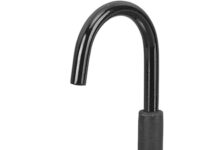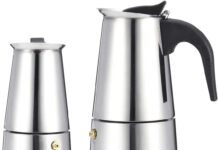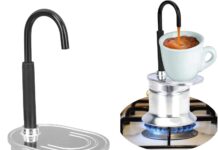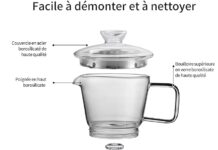Good day! Today, we will be unraveling the mystery behind the frustratingly slow brewing process of coffee makers. Have you ever wondered why it seems like an eternity for your beloved coffee machine to deliver that much-needed cup of caffeine in the morning? Well, fear not, for we are here to shed some light on the possible culprits behind this delay. So, grab your favorite mug and let’s embark on a journey to understand what might be causing your coffee maker to brew at a snail’s pace.
What Causes A Coffee Maker To Brew Slowly?
Have you ever found yourself waiting impatiently for your morning cup of joe, only to be met with a slow and sluggish brew? It can be a frustrating start to the day, but fear not! There are several common culprits that can cause your coffee maker to brew slowly. In this article, we will explore the various factors that may be behind this issue and provide some helpful tips to get your coffee brewing at full speed once again. So grab your favorite mug, and let’s dive in!
Clogged Water Path
One of the most common reasons for a slow brew is a clogged water path. Over time, mineral deposits from the water can accumulate in the internal plumbing of your coffee maker, obstructing the flow of water. This can lead to a slower brewing process as the water struggles to make its way through the system. To combat this issue, it is important to regularly clean and descale your coffee maker. Follow the manufacturer’s instructions on how to remove mineral build-up and keep the water path clear.
Mineral Build-Up
If your coffee maker has not been regularly descaled, mineral build-up can occur not only in the water path but also in other components such as the heating element and the reservoir. This build-up can impede the efficiency of the machine and cause it to brew slowly. To prevent mineral build-up, consider using filtered or distilled water when brewing your coffee. Additionally, make it a habit to descale your coffee maker at least once every three months, or more frequently if you live in an area with particularly hard water.
Improper Coffee Ground Size
Believe it or not, the size of your coffee grounds can also affect the speed at which your coffee brews. If the coffee grounds are too fine, they can create a dense and compact layer that water struggles to penetrate. On the other hand, if the coffee grounds are too coarse, water can pass through too quickly, resulting in a weak and under-extracted brew. Finding the right grind size for your brewing method is crucial for a balanced and timely brew. Experiment with different grind settings until you find the one that suits your taste preferences and ensures a smooth and efficient brewing process.
Dirty or Clogged Filter
A dirty or clogged filter can significantly slow down the brewing process. Over time, coffee oils and residue accumulate on the filter, reducing its permeability and causing the water to flow through at a slower rate. To avoid this, make sure to clean your coffee filter after every use. Rinse it thoroughly with warm water to remove any leftover grounds and oils. Depending on the type of filter you use, it may also be beneficial to soak it in a solution of water and white vinegar to remove stubborn build-up.
Low Water Temperature
A coffee maker relies on hot water to extract the flavors and aromas from your coffee grounds. If the water temperature is too low, the brewing process can become slow and ineffective. Low water temperature can be caused by a malfunctioning thermostat, which fails to heat the water to the desired temperature. To ensure that your coffee maker is reaching the appropriate temperature, run a test brew and use a thermometer to measure the water before it comes into contact with the coffee grounds. If the temperature is not within the recommended range, it may be time to replace the thermostat.
Malfunctioning Heating Element
Similar to the issue of low water temperature, a malfunctioning heating element can result in a slow brew. The heating element is responsible for heating the water to the proper temperature before it is dispensed over the coffee grounds. If the element is damaged or not functioning correctly, it may take longer for the water to reach the desired temperature, resulting in a slow brewing process. If you suspect that your heating element is the culprit, it is best to consult a professional technician for repair or replacement.
Scale Build-Up in Pipes
Just as mineral build-up can affect the internal components of your coffee maker, it can also accumulate in the pipes that transport water throughout the machine. Scale build-up can restrict the flow of water and cause a slower brewing process. Regular descaling and maintenance can help prevent this issue. However, if the scale build-up is extensive, it may require professional cleaning or replacement of the affected pipes.
Incorrect Brewing Ratio
The brewing ratio plays a crucial role in the overall brewing process. If the amount of water or coffee grounds is not properly measured, it can lead to a slow and imbalanced brew. Too much water can cause the brewing process to take longer, as the water needs more time to extract the flavors from the coffee grounds. Conversely, too little water may result in a faster brew, but the coffee may be weak and lacking in taste. Establishing the correct brewing ratio is essential for achieving a well-brewed and timely cup of coffee.
Overuse of Coffee Maker
It’s no secret that coffee makers are designed to withstand regular use, but overuse can take a toll on their performance. Continuous brewing without adequate downtime for the machine to cool down and reset can lead to a slower brewing process. Additionally, excessive wear and tear on the internal components may cause them to function less efficiently, resulting in a slow brew. To avoid this, allow your coffee maker to cool down between batches and follow the recommended usage guidelines provided by the manufacturer.
Malfunctioning Water Pump
The water pump is responsible for pumping water from the reservoir and distributing it over the coffee grounds. If the pump is malfunctioning, it can affect the flow of water and result in a slower brewing process. To determine if the water pump is the cause of the issue, listen for any abnormal sounds coming from the coffee maker during the brewing process. If there are unusual noises or a lack of water flow, it may indicate a problem with the pump. In such cases, it is best to seek professional assistance for repair or replacement.
Now that you are armed with knowledge about the various factors that can cause a coffee maker to brew slowly, you can take the necessary steps to ensure a smooth and efficient brewing process. Regular cleaning and maintenance, along with proper water temperature and brewing ratios, will help keep your coffee maker in top shape. So, the next time you find yourself waiting for that perfect cup of coffee, remember to check for any of these common issues and make the necessary adjustments. Happy brewing!





































